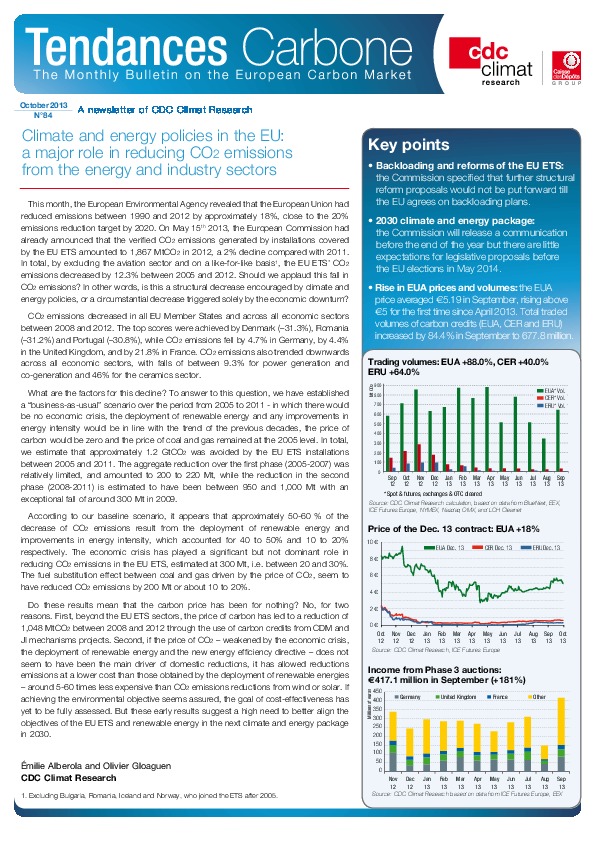Climate and energy policies in the EU: a major role in reducing CO2 emissions from the energy and industry sectors
![]() Backloading and reforms of the EU ETS: the Commission specified that further structural reform proposals would not be put forward till the EU agrees on backloading plans.
Backloading and reforms of the EU ETS: the Commission specified that further structural reform proposals would not be put forward till the EU agrees on backloading plans.
![]() 2030 climate and energy package: the Commission will release a communication before the end of the year but there are little expectations for legislative proposals before the EU elections in May 2014.
2030 climate and energy package: the Commission will release a communication before the end of the year but there are little expectations for legislative proposals before the EU elections in May 2014.
![]() Rise in EUA prices and volumes: the EUA price averaged €5.19 in September, rising above €5 for the first time since April 2013. Total traded volumes of carbon credits (EUA, CER and ERU) increased by 84.4% in September to 677.8 million.
Rise in EUA prices and volumes: the EUA price averaged €5.19 in September, rising above €5 for the first time since April 2013. Total traded volumes of carbon credits (EUA, CER and ERU) increased by 84.4% in September to 677.8 million.
